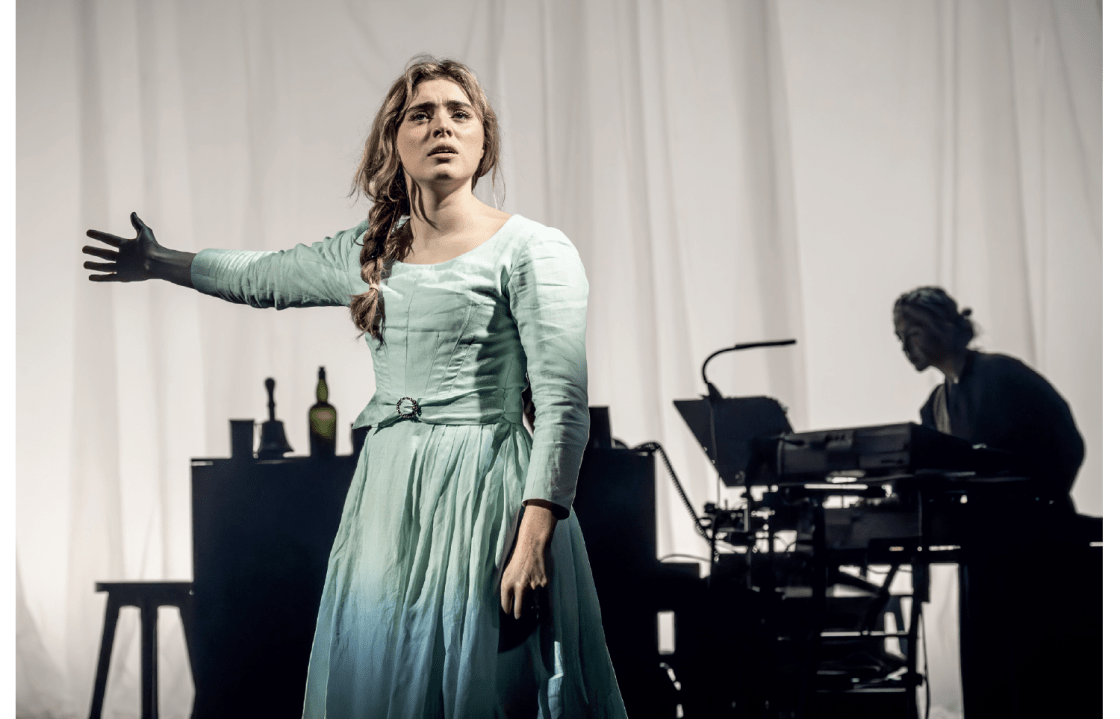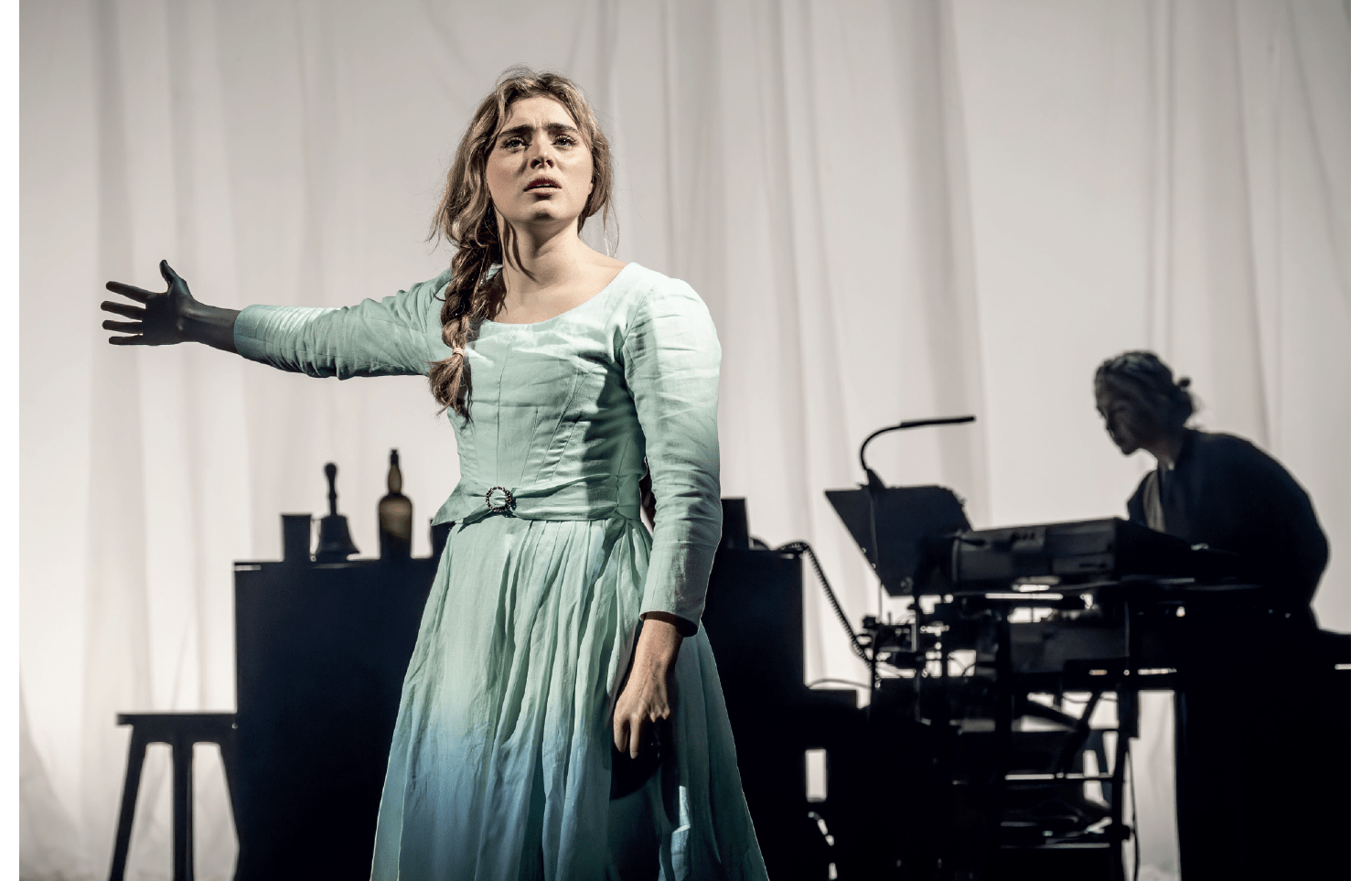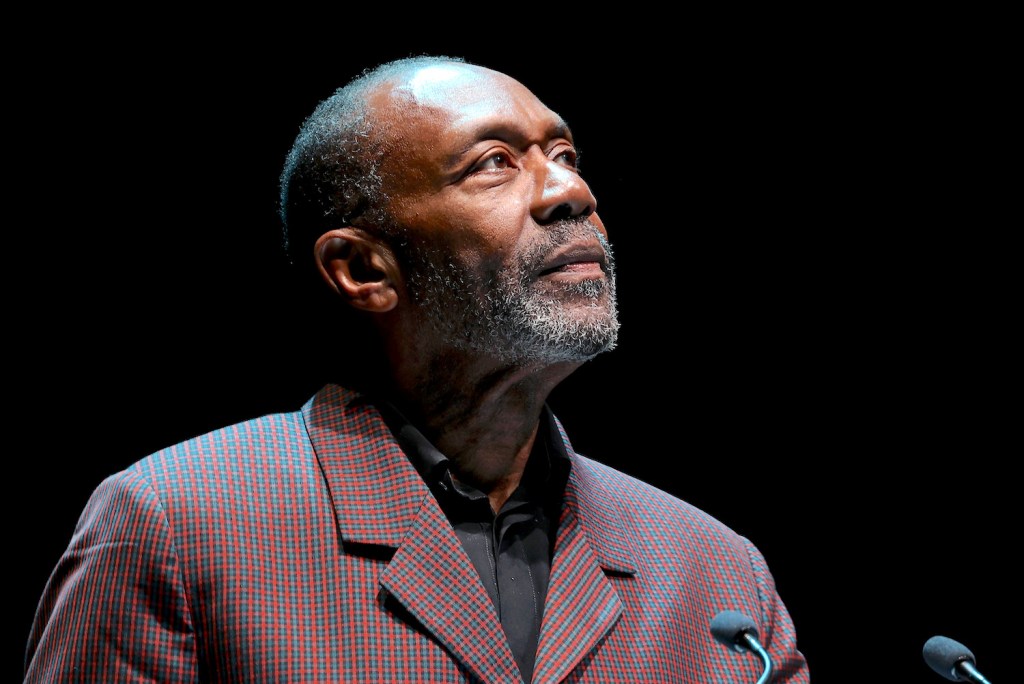Our Mutual Friend has been turned into a musical with a new title, London Tide, which sounds duller and more forgettable than the original. Why change the name? To confuse fans of Dickens, presumably, and to keep the theatre half-empty while heaps of tickets are sold at a discount.
At the end of Act One, an actor explains the entire plot. This might have been delivered earlier
The plot is a cheesy Victorian whodunnit involving three main characters and multiple locations so it’s hard to follow the action as it flits from this lowly hovel to that seedy tavern. The chief personalities are a pretentious lawyer, a psychotic teacher and a shifty lodger who won’t reveal his name. Could the shifty lodger be connected to a stingy millionaire who recently died and left a fortune to his estranged son on the condition that he marries a haughty young woman? Yes he could. This framework is fleshed out with 20 or so ‘lovable Cockneys’ from Dickens’s store-cupboard of cheery East-End chatterboxes.
The most unlikely figure on stage is a deranged schoolmaster, Bradley Headstone, played by Scott Karim (who could be Nick Cave’s doppelgänger). Headstone is a schizophrenic character who poses as a saviour of illiterate waifs during the day but who turns into a crazed thug at the stroke of midnight. He stalks his love rivals through the streets and attacks them with a cudgel before tossing their semi-conscious bodies into the Thames. His personality makes no sense at all. Nor does the play’s health-and-safety message. Several characters drown during the runtime but no one learns to swim.
At the end of the first act, which lasts 100 minutes, an actor walks on stage and gives a detailed explanation of the entire plot. This might have been delivered earlier.
The show grinds on for more than three hours but there are a few highlights along the way. The cast of catwalk paupers are marvellous to look at. They all have spotless complexions, perfect hair-dos, athletic figures and teeth that dazzle like sunlight on fresh snow. And their brand-new costumes are exquisitely cut from costly materials with a few smearings of charcoal on the hems to resemble river slime and gutter spatterings. Much effort has gone into the dialect work and the entire cast have mastered the Cockney accent by watching videos of Peter Ustinov telling jokes about London cabbies. The occasional songs by P.J. Harvey sound like a single dirge-like melody divided into separate pieces and delivered at intervals during the show. It’s ideal music if you’re having a nervous breakdown. Or you could play it at the end of a party when your guests refuse to leave.
The set, by Bunny Christie, is a chic dance studio with a glossy floor and a metal framework overhead that holds 48 spotlights. Is it Dickensian? Not really. It looks like the lighting rig used by Genesis when they toured the world at the height of prog rock. The show’s best feature is Jenny, a starving urchin, played by Ellie-May Sheridan. She has tons of charisma and she knows how to get laughs from unpromising material. And gosh, this show needs her.
The Comeuppance is a rhetorical exercise masquerading as a play. The production follows the stories of five Americans in their late thirties who meet on somebody’s porch to gossip about high school where they formed a nerdy society, ‘MERGE’, or the ‘Multi-Ethnic Reject Group Experience’. This meandering drama feels like the transcript of a WhatsApp conversation, transferred to the stage. During the first half, everyone is friendly and pleasant but as the booze flows the mood darkens. A few jibes are traded. Someone has a panic attack. Someone else suffers a hysterical meltdown. And there’s an epileptic episode and a shouty speech or two, but these snags are swiftly resolved. At the climax, a forbidden kiss is exchanged. It’s a huge pile of nothing about a lot of stuff that happened 20 years ago.
In real life, Emilio would have no friends at all because he’s an interfering nuisance
The playwright, Branden Jacobs-Jenkins, doesn’t know how to create a drama out of the events that are unfolding on stage, but he wants to force his characters to make transformative, life-changing decisions. Instead, he delivers two hours of ho-hum bickering. To add ‘significance’ to the play, he includes arty sections where the actors break character and speak in strange accents while delivering soliloquies beneath a spotlight. Weird echo effects make these interludes even more surreal.
None of the characters are likeable or interesting and the central figure, Emilio, is a priggish show-off who tries to impress his pals by using German phrases and by peppering his talk with references to ‘the Platonic forms’. In real life, Emilio would have no friends at all because he’s an interfering nuisance who quizzes people about their private lives and tells them that their conduct displeases him. This flop follows a familiar pattern: an American writer, hugely acclaimed at home, arrives in London with trash mislabelled ‘drama’.









Comments